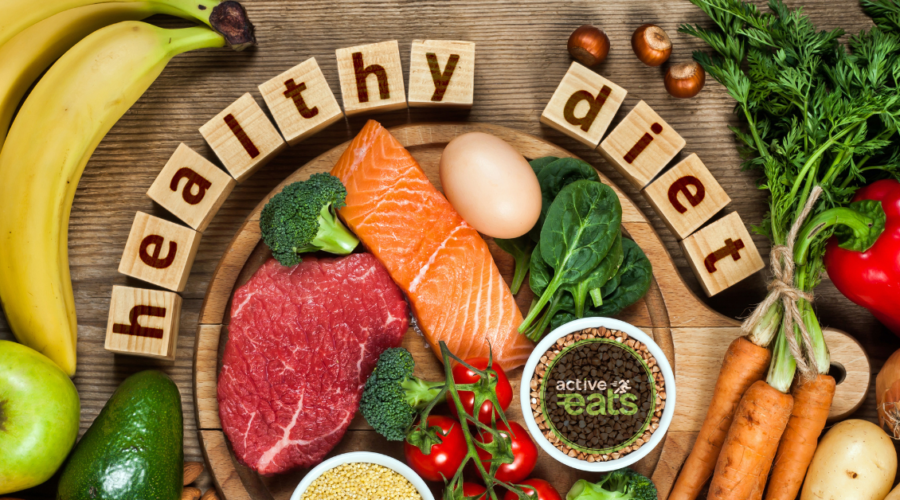Nourishing Wellness: Crafting a Roadmap to a Vibrant Life Through a Healthy Diet
A healthy diet is the primary requirement to maintain a healthy lifestyle and overall well-being. It includes eating a variety of fruits, vegetable, seeds and nuts which have all the necessary nutrients in it. Consuming healthy diet helps in optimal brain function and cognitive health and prevents chronic diseases such as heart disease, diabetes, and obesity. In this blog post, we will cover a healthy diet plan for children, adults or elder person along with diet plan to lose weight, gain weight, build muscle, or simply to improve your overall health. So, let’s dive in and discover the importance of a healthy diet and how it can positively impact your life.
The Importance of a Healthy Diet
Our body require various essential nutrients to function properly, meet its daily requirements and fight against infections and chronic diseases like heart disease, diabetes, and obesity. A balanced healthy diet is, therefore, very crucial for maintaining overall health and well-being. Additionally, a healthy diet plays a significant role in supporting optimal brain function and cognitive health.
Creating a Healthy Diet Plan for Children
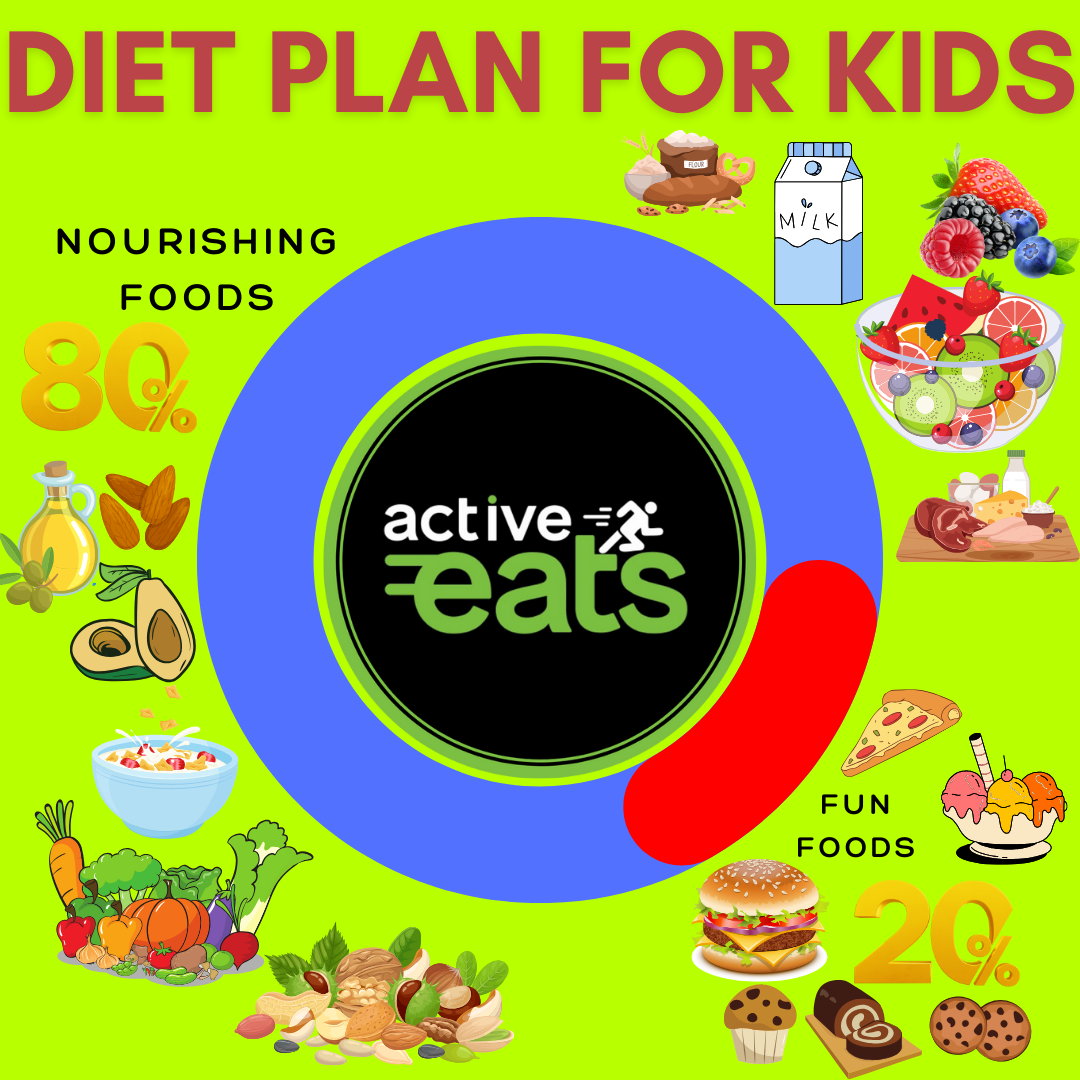
Children need a balanced diet for their right growth and high immunity. A diet that includes fruits, vegetables, whole grains, lean proteins, and dairy can help children maintain a healthy weight and prevent nutritional deficiencies.
Including children in meal planning and preparation can encourage them to make healthier food choices.
Common problems that parent face with their children regarding diet and eating habits:
- Picky Eating
- Not eating enough fruits and vegetables
- Not eating Enough Fibre
- Not eating enough vitamins and minerals
Certain points that we should keep in mind while dealing with children and their eating habits:
- Milk is must for children
- Do not make kinds feel bad about eating any food
- Avoid eating extra sugar or salt into food
- Do not make kids eat more than they want
- Avoid offering food as a reward
- Prepare a balanced diet chart containing variety of fruits and vegetables and share it with your children
Effective Strategies for Weight Loss with a Healthy Diet
When it comes to weight loss, a healthy diet plays a crucial role in achieving your goals. Here are some effective strategies to help you shed those extra pounds:
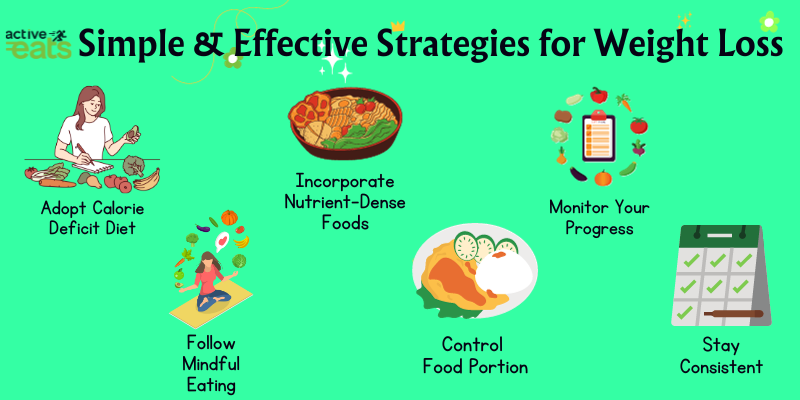
Dos and Don’ts for Weight Loss with a Healthy Diet
When it comes to weight loss, a healthy diet is key. Here are some effective strategies to help you achieve your weight loss goals:
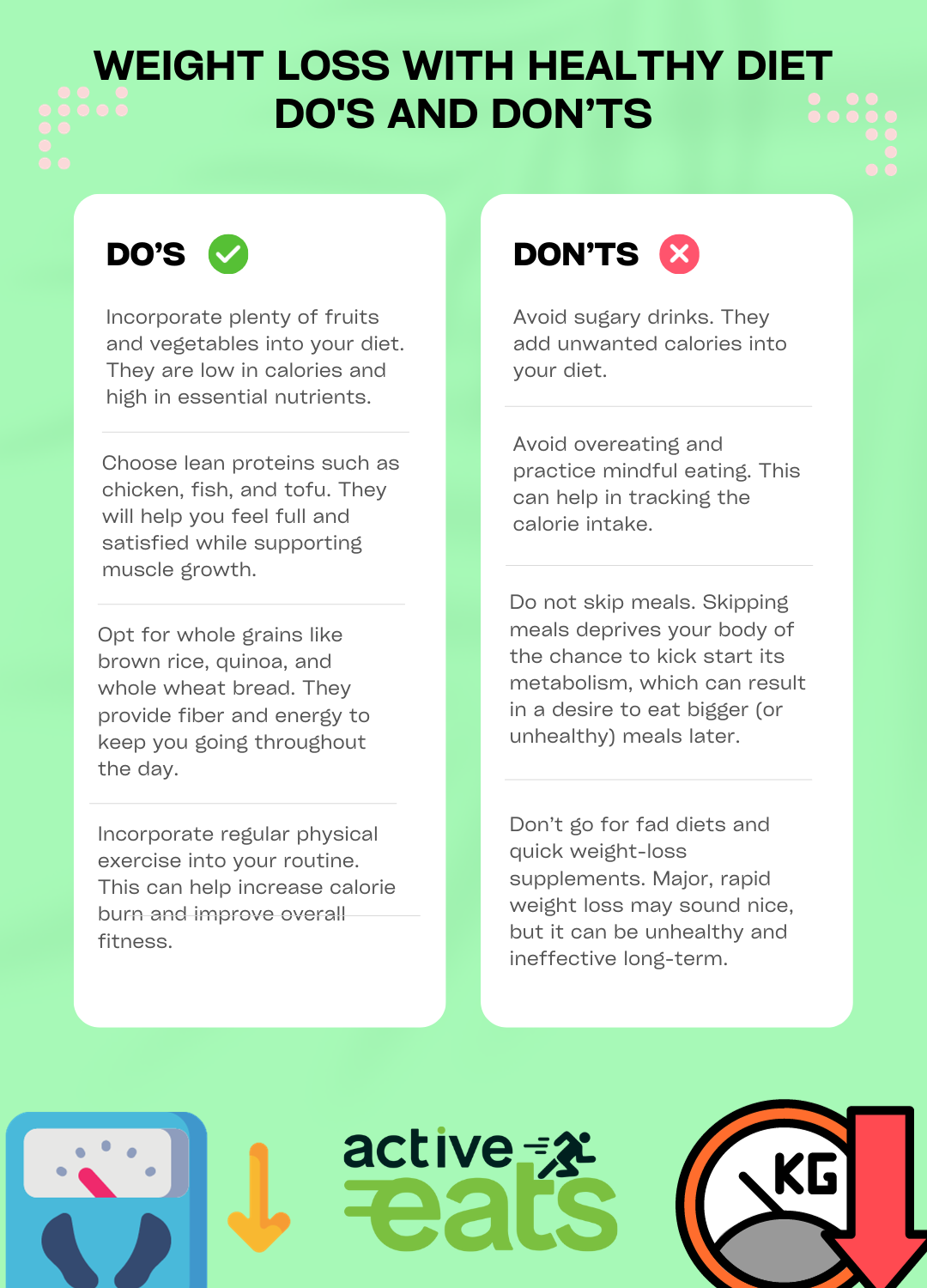
Gaining Weight the Healthy Way through Diet
To gain weight in a healthy way, consuming nutrient-dense foods that are high in calories is the key. A healthy diet for weight gain should include healthy fats, lean proteins, whole grains, and plenty of fruits and vegetables.
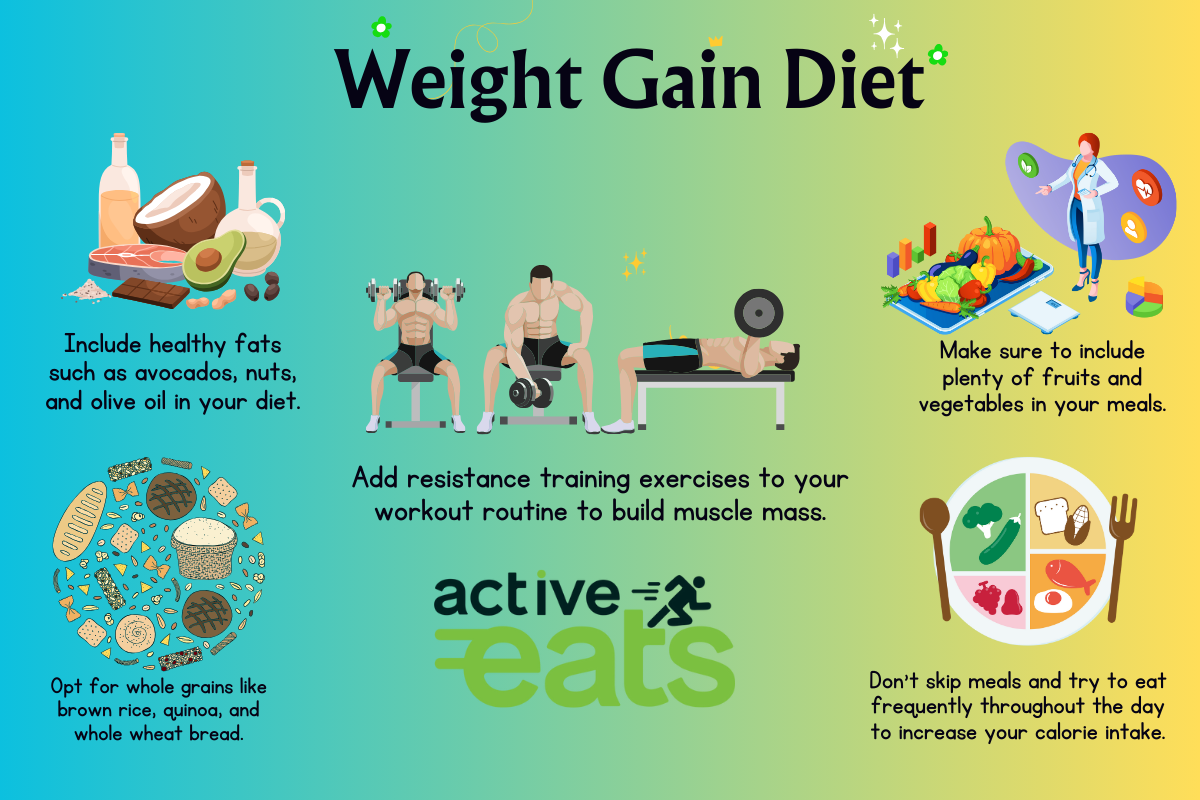
Also, spending atleast 15-20 minutes daily in light workout or resistance training along with consuming enough protein can help promote muscle growth and weight gain.
Remember that gaining weight in a healthy way takes time and consistency. Be patient and focus on nourishing your body with nutritious foods.
Fueling Your Muscles with a Healthy Diet for Workouts
Achieving your fitness goals requires not only regular exercise but also fueling your muscles with the right nutrients. A healthy diet plays a crucial role in supporting your workouts and helping you achieve optimal results.
A Balanced Diet for Workouts
To maximize your performance and recovery, it’s important to consume a balanced diet that includes a combination of carbohydrates, protein, and healthy fats.
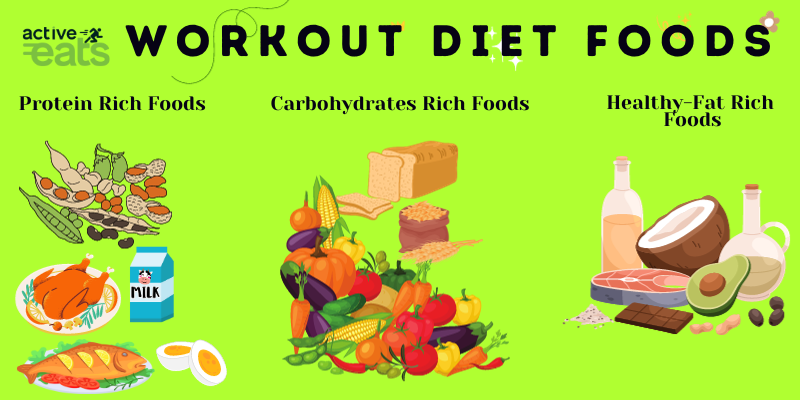
Carbohydrates: Complex carbohydrates such as whole grains, fruits, and vegetables should be the primary source of energy in your diet. They provide sustained energy throughout your workouts.
Protein: Lean sources of protein like chicken, fish, eggs, and legumes are essential for muscle repair and growth. Aim to include protein in every meal and snack.
Healthy Fats: Incorporate sources of healthy fats like avocados, nuts, seeds, and olive oil into your diet. They provide energy, support hormone production, and reduce inflammation.
Pre-Workout Nutrition
Eating a combination of carbohydrates and protein before your workout can provide your muscles with the fuel they need to perform at their best. Consider options like a banana with almond butter or Greek yogurt with granola.
Post-Workout Nutrition
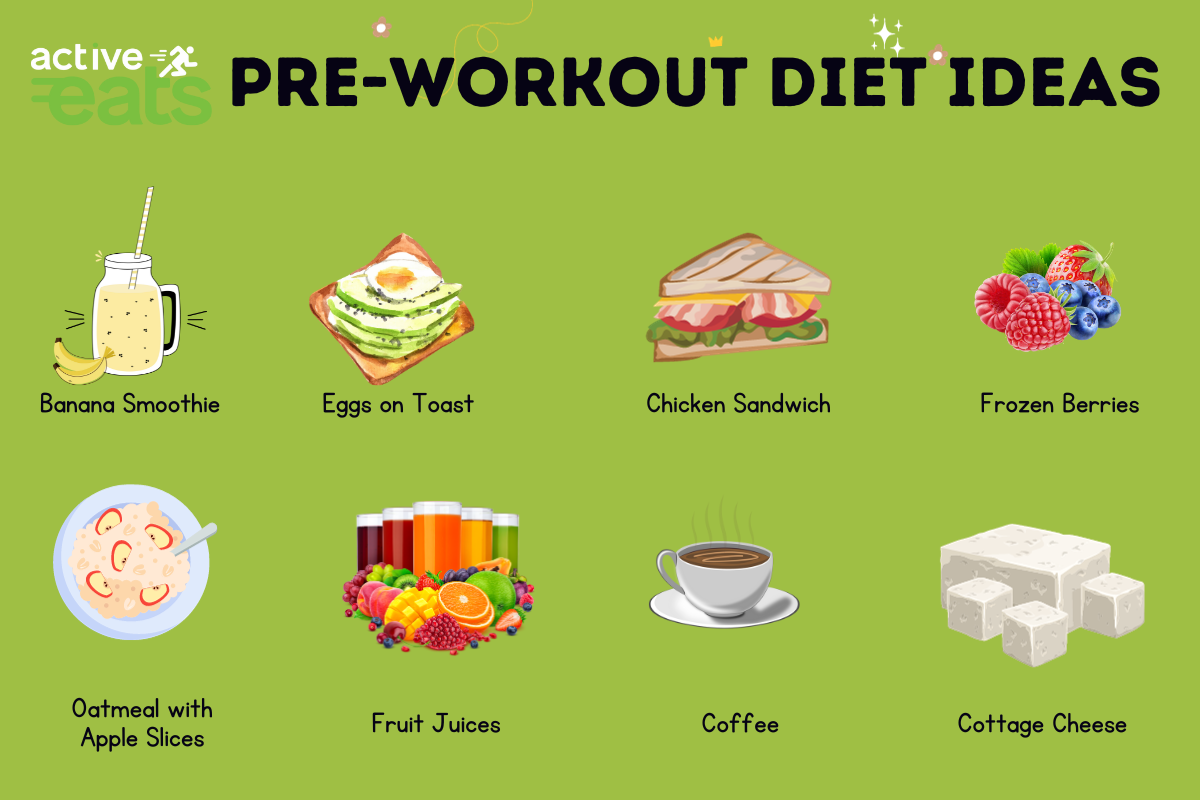
After your workout, it’s crucial to replenish your energy stores and support muscle repair. A snack or meal that includes carbohydrates and protein is ideal. Options could include a smoothie with protein powder, a turkey and avocado wrap, or a quinoa and vegetable stir-fry.
Antioxidant-Rich Foods for Recovery
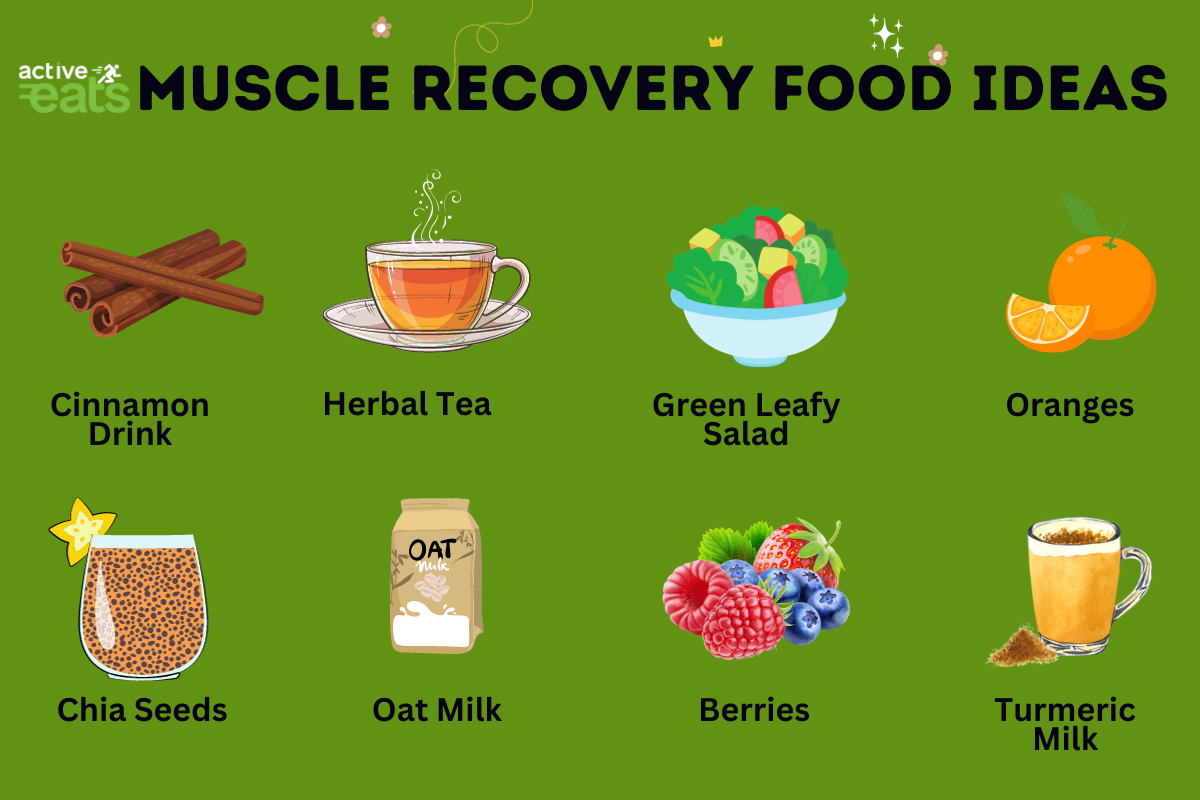
Intense workouts can lead to muscle inflammation and oxidative stress. Including antioxidant-rich foods like berries, dark leafy greens, and turmeric in your diet can help reduce inflammation and promote faster recovery.
Remember, consistency is key in maintaining a healthy diet for workouts. Fueling your muscles properly will not only enhance your performance but also support your overall health and well-being.
Delicious and Nutritious Recipes for a Healthy Diet
When it comes to maintaining a healthy diet, finding delicious and nutritious recipes is essential. Here are a few ideas to try:
Quinoa Salad
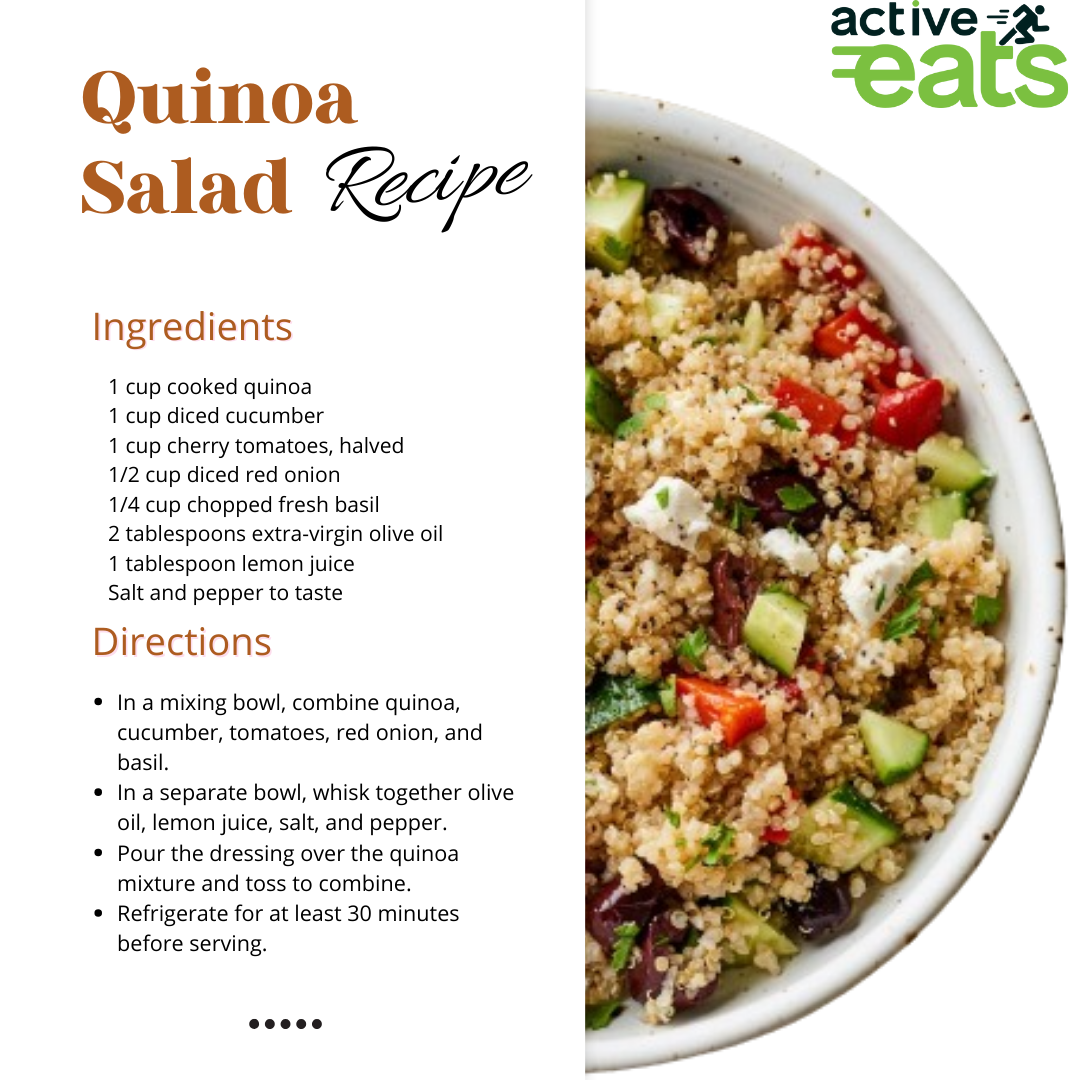
Grilled Chicken with Roasted Vegetables
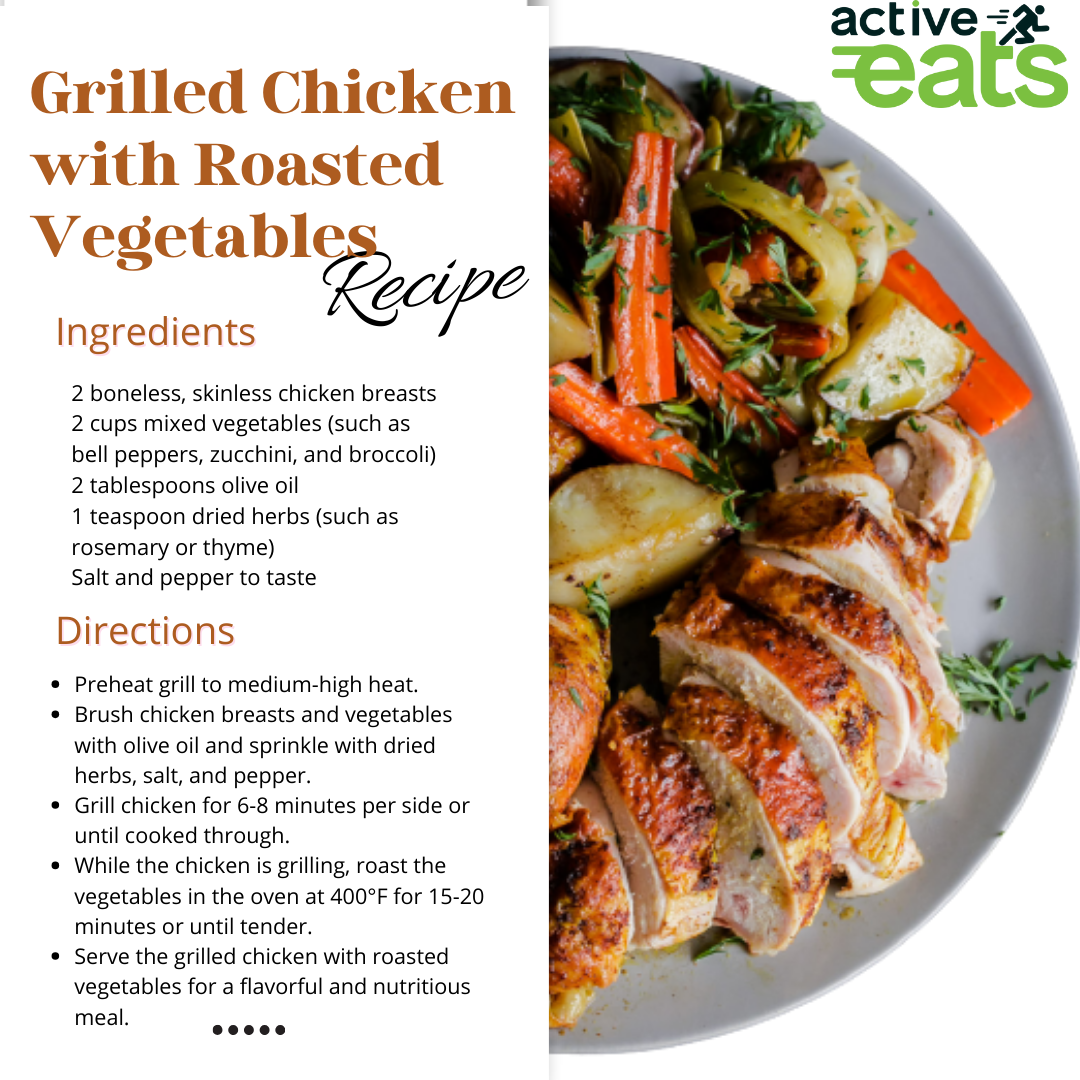
Berry Smoothie Bowl
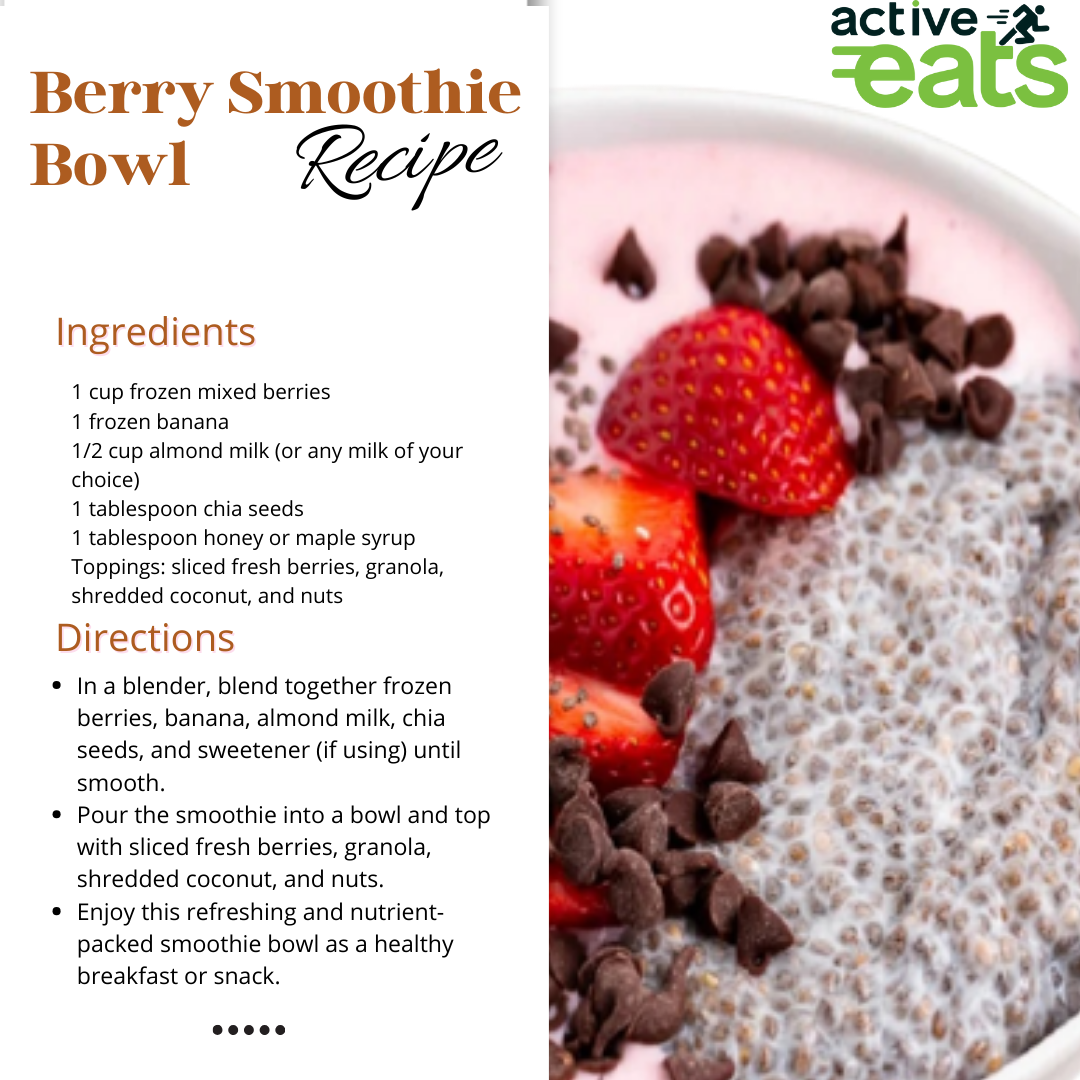
Baked Salmon Rice Bowl
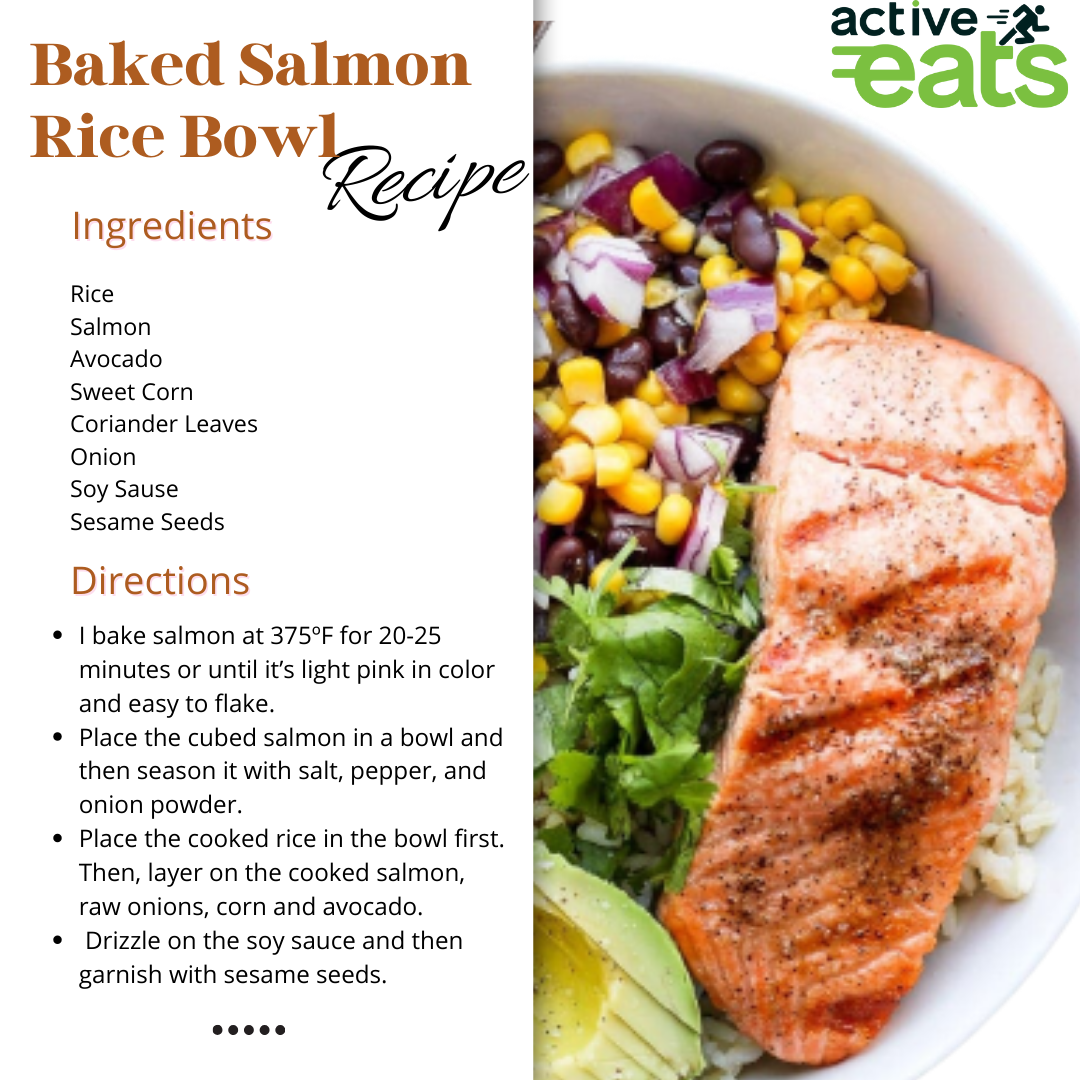
This heart-healthy recipe features omega-3 fatty acid-rich salmon.
Greek Yogurt Parfait
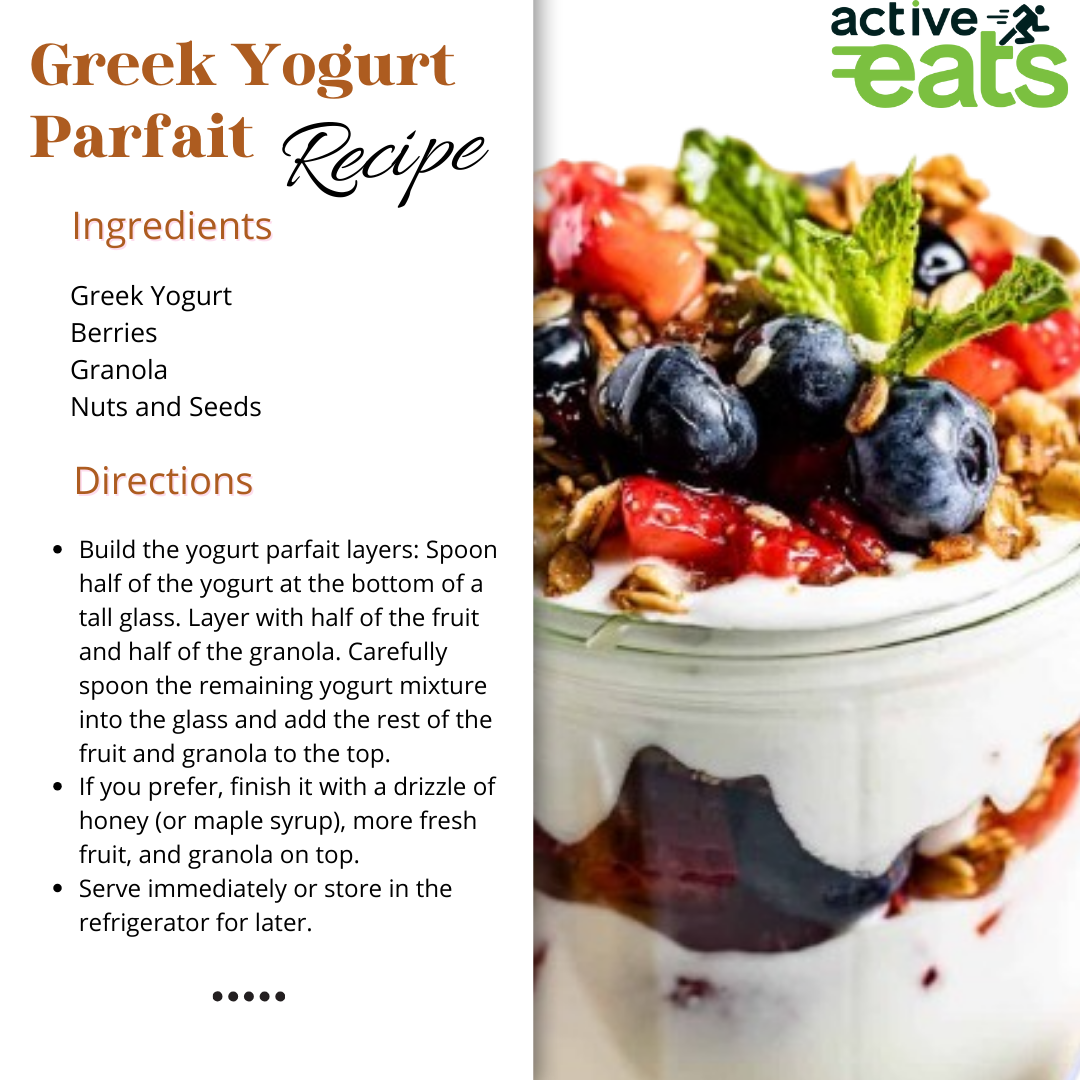
Turkey Lettuce Wraps
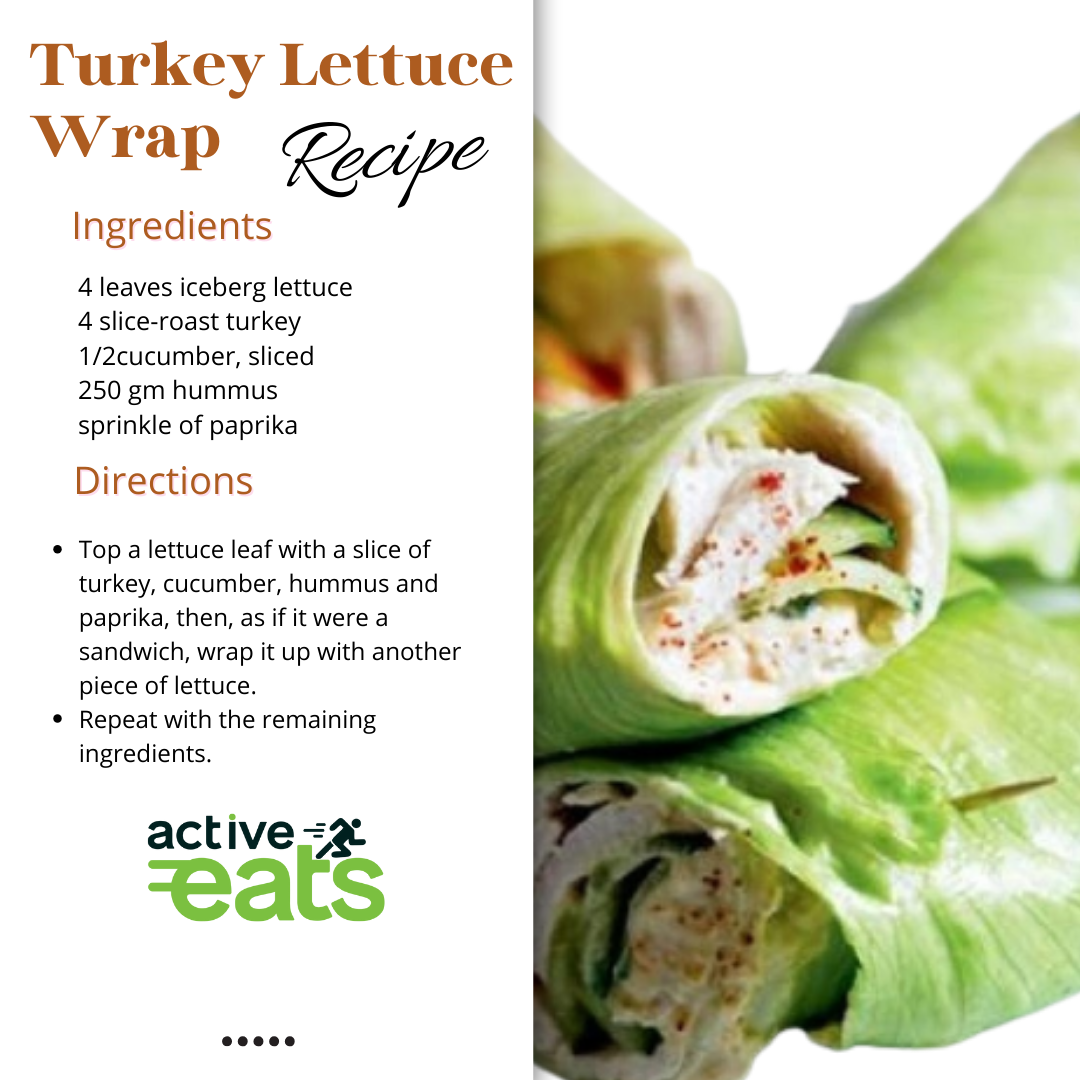
Note: These recipes are just a starting point. Feel free to personalize them by adding your favorite ingredients and spices. Remember, a healthy diet doesn’t have to be bland or boring. Get creative in the kitchen and enjoy nourishing your body with delicious meals.
Maintaining Optimal Health with a Healthy Diet for Women
A healthy diet is important for women to maintain optimal health and prevent chronic diseases.
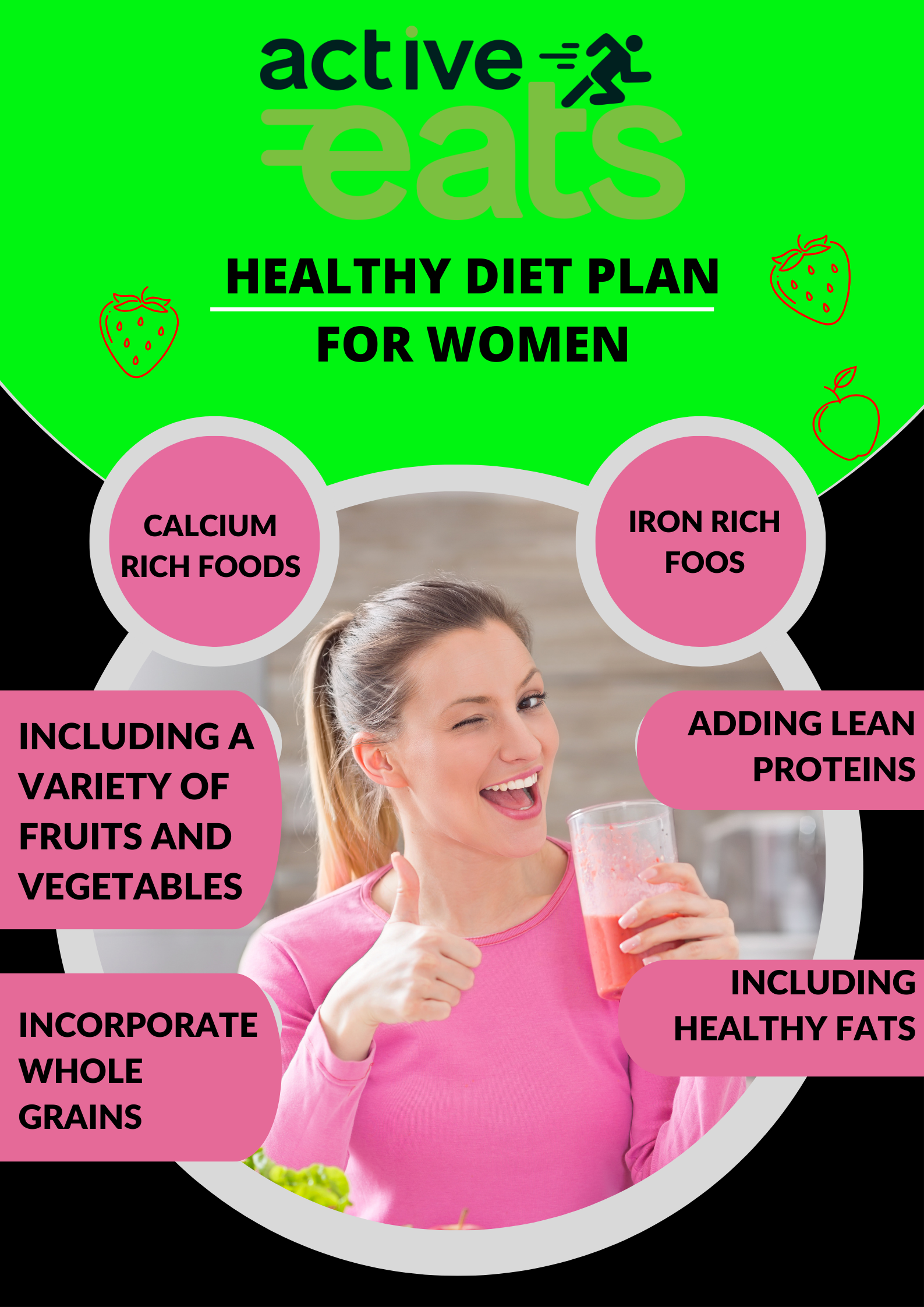
Here are some key points to keep in mind when designing a healthy diet plan for women:
Including a Variety of Fruits and Vegetables
Make sure to include a variety of fruits and vegetables in your diet. They are rich in vitamins, minerals, and antioxidants that can help support your overall health.
Incorporating Whole Grains
Choose whole grains over refined grains to provide more fiber and nutrients to your diet. Whole grains can also help regulate blood sugar levels and promote digestive health.
Adding Lean Proteins
Incorporating lean proteins such as chicken, fish, tofu, and legumes can help provide essential amino acids for muscle repair and growth.
Including Healthy Fats
Don’t be afraid to include healthy fats in your diet. Foods like avocados, nuts, seeds, and olive oil contain monounsaturated fats that are beneficial for heart health.
Prioritizing Calcium and Iron Intake
Women have specific nutrient needs such as calcium and iron. Include dairy products, leafy greens, and fortified cereals in your diet to support bone health and blood production.
By following a healthy diet plan that includes a variety of nutritious foods, women can maintain optimal health and prevent chronic diseases.
Nourishing Your Hair with a Healthy Diet
A healthy diet can play a crucial role in promoting hair growth and maintaining healthy hair. By including certain foods in your diet, you can nourish your hair follicles and enhance the overall health of your hair.
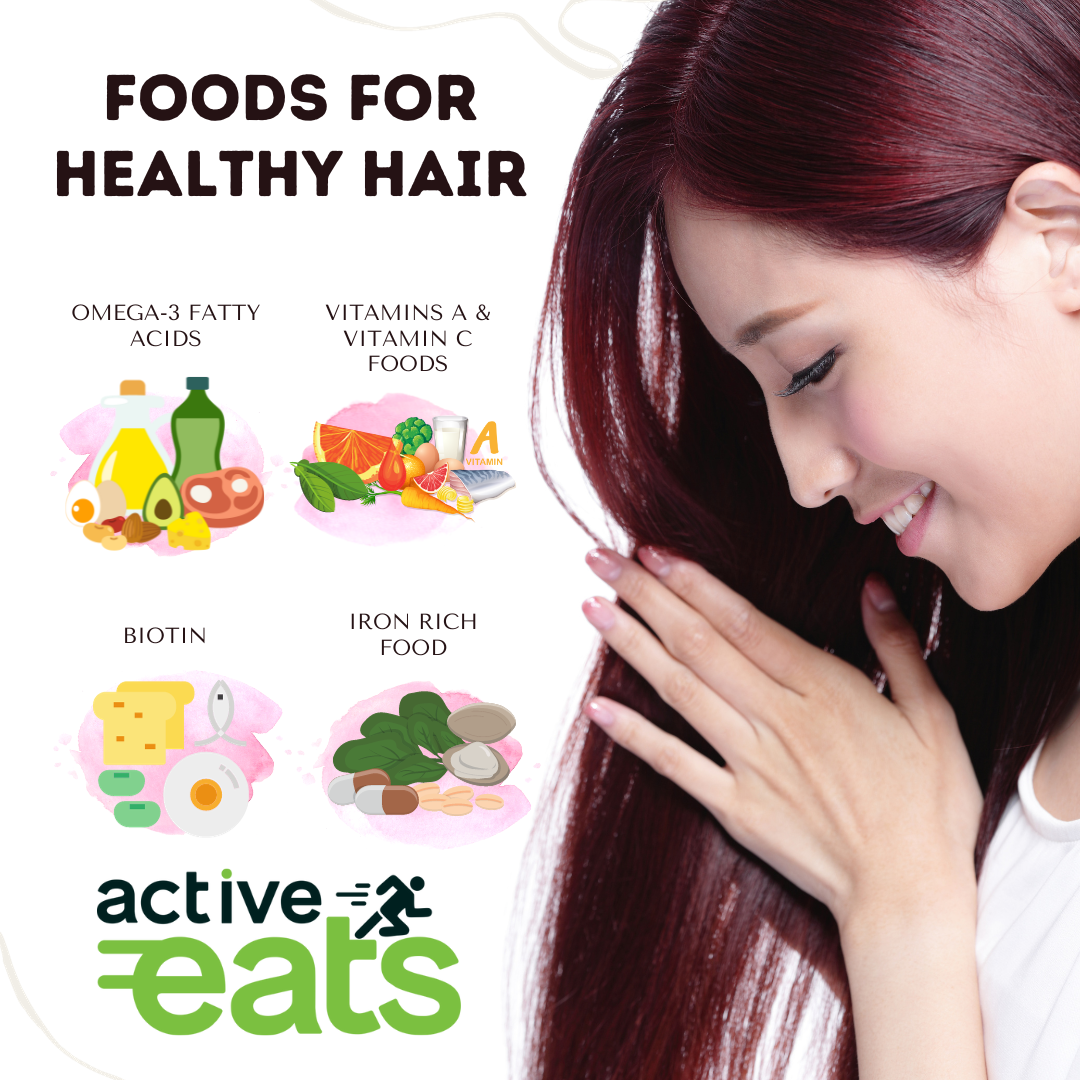
Foods for Healthy Hair
Omega-3 Fatty Acids: Foods like salmon, walnuts, and chia seeds are rich in omega-3 fatty acids, which help keep your scalp moisturized and promote hair growth.
Vitamins A and C: Foods like sweet potatoes, carrots, oranges, and strawberries are packed with vitamins A and C, which are essential for sebum production and collagen synthesis. Sebum keeps your scalp healthy, and collagen strengthens your hair.
Biotin: Biotin, found in foods like eggs, nuts, and avocados, is essential for hair growth and overall hair health.
Iron: Including iron-rich foods like spinach, lentils, and lean red meat can prevent hair loss and promote stronger, healthier hair.
To optimize the benefits of a healthy diet for your hair, it is also important to:
Stay Hydrated: Drinking enough water is crucial for maintaining hair hydration and overall hair health.
Avoid Unhealthy Fats: Limit the consumption of unhealthy fats, such as those found in fast food and processed snacks, as they can negatively impact hair health.
Minimize Heat and Chemical Damage: Excessive heat styling and chemical treatments can damage your hair. Minimize their use and always use heat protectant products when styling.
Maintain a Healthy Scalp: A healthy scalp is the foundation for healthy hair. Keep your scalp clean and moisturized by regularly washing your hair and using gentle, nourishing hair care products.
By incorporating these tips into your diet and hair care routine, you can nourish your hair from the inside out and enjoy strong, vibrant, and healthy locks.
Conclusion
Eating a healthy diet is essential for maintaining overall health and well-being. It prevents chronic diseases, support weight loss or gain and promote healthy hair growth. Creating a healthy diet plan for children can set them up for a lifetime of good eating habits. Delicious and nutritious recipes can make healthy eating enjoyable, and designing diet plans specific to men and women’s needs is important. Simple tips like incorporating more fruits and vegetables, choosing whole grains, and limiting added sugars and sodium can significantly improve our diets. By eating well, we can feel great, have more energy, and nourish our bodies from the inside out. Remember, a healthy diet is a key component of a healthy lifestyle.

